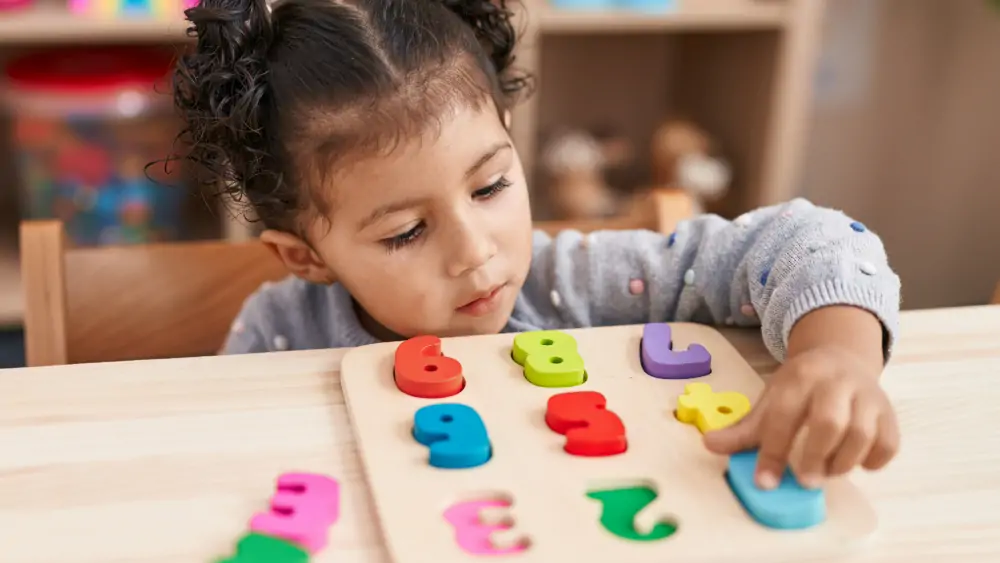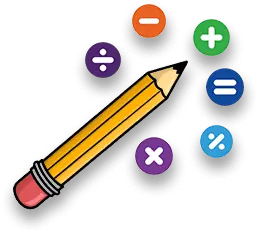
- July 15, 2024
Social Share:
The Power of Early Math Skills: How Worksheets Can Help
Introduction
Math is everywhere. From counting apples in the grocery store to figuring out how much time you have left before your favorite TV show starts, math skills are essential in daily life. But did you know that developing these skills early can set a strong foundation for future success? One effective tool to aid in this development is the humble worksheet.
In this article, we’ll explore why early math skills are crucial and how consistent practice with worksheets can help nurture these skills.
Why Early Math Skills Matter
Early math skills play a significant role in a child’s overall cognitive development. They help children understand and interact with the world around them. Research shows that children who develop strong math skills early on tend to perform better academically throughout their school years. But it’s not just about academics—math skills are also vital for everyday tasks, from managing money to solving problems.
The Role of Worksheets in Early Math Development
Worksheets provide a structured and consistent way for children to practice math. They offer immediate feedback, which helps kids learn from their mistakes and understand concepts more deeply. Plus, worksheets can be customized to suit each child’s learning style and pace, making them a versatile tool in any educational setting.
Benefits of Developing Math Skills Early
When children develop math skills early, they gain enhanced problem-solving abilities. They learn to think critically and approach challenges with a logical mindset. This foundation not only helps them excel in math but also boosts their performance in other subjects and prepares them for complex problem-solving in the future.
How Worksheets Foster Math Skills
Worksheets foster math skills through practice and repetition. They provide visual learning aids that help children grasp abstract concepts. Additionally, worksheets allow for progress tracking, enabling parents and teachers to monitor a child’s development and adjust the learning process as needed.
Types of Math Worksheets for Early Learners
There are various types of math worksheets designed for early learners. Basic arithmetic worksheets help children practice addition, subtraction, multiplication, and division. Worksheets on shapes and patterns enhance their understanding of geometry. Word problems improve their ability to apply math in real-world scenarios.
Implementing Worksheets in Daily Routine
To make the most of worksheets, it’s important to integrate them into a child’s daily routine. Setting a regular schedule for worksheet practice can create a habit of learning. Balancing worksheets with play ensures that learning remains enjoyable. Encouraging independent work helps children build confidence and self-discipline.
Engaging Children with Math Worksheets
Engaging children with math worksheets can be a fun and rewarding experience. Making the process enjoyable through games and activities can keep their interest alive. Incorporating reward systems, such as stickers or small treats, can motivate them to complete their worksheets diligently.
Challenges and Solutions
While worksheets are beneficial, some children may resist using them. To overcome this, it’s important to make learning fun and relatable. Addressing different learning paces is crucial, as each child develops at their own speed. Ensuring understanding rather than rote learning helps children grasp concepts better.
The Impact of Parental Involvement
Parental involvement is key to a child’s success in math. Supporting learning at home by setting aside time for worksheets and discussing their progress can make a big difference. Communicating with teachers to align on learning strategies and creating a positive math environment at home fosters a love for the subject.
Worksheets in the Classroom
In the classroom, teachers can use worksheets to reinforce lessons and assess student understanding. Collaborative learning, where students work on worksheets together, can encourage peer-to-peer learning. Regular assessment through worksheets helps teachers track progress and identify areas that need more attention.
Technology and Math Worksheets
Technology has transformed traditional worksheets into interactive learning tools. Digital worksheets and apps offer engaging and interactive ways for children to practice math. Online resources provide a vast array of worksheets, catering to different learning needs and styles.
Long-Term Benefits of Early Math Proficiency
Proficiency in math opens up numerous academic and career opportunities. Students with strong math skills are more likely to pursue higher education and careers in STEM fields. Beyond academics, math teaches critical thinking and problem-solving skills that are valuable throughout life.
Conclusion
Early math skills are a cornerstone of a child’s education and overall development. Worksheets are a powerful tool to support this learning journey, providing structure, practice, and feedback. By integrating worksheets into daily routines and making learning enjoyable, parents and teachers can help children build a strong foundation in math that will benefit them for years to come.
Latest Posts

Best Educational Apps for Kids: Fun Learning Through Play
December 19, 2024Discover the best educational apps for kids that...
Read more

Building a Love for Reading: Strategies for Parents
December 15, 2024A love for reading is not just about...
Read more

Essential Social Skills Every Child Needs Before Starting Kindergarten
December 9, 2024Discover key social skills every child should learn...
Read more

Building a Love for Reading: Proven Strategies for Parents
November 20, 2024Discover practical strategies for parents to nurture a...
Read more
Related Posts
-
 December 19, 2024
December 19, 2024Best Educational Apps for Kids: Fun Learning Through Play
Discover the best educational apps for kids that combine learning with fun. Enhance skills in math, reading, creativity, and more through play!
-
 December 15, 2024
December 15, 2024Building a Love for Reading: Strategies for Parents
A love for reading is not just about books; it’s about opening hearts and minds to endless possibilities. What’s your favorite memory of reading with your child? Share it in...
-
 December 9, 2024
December 9, 2024Essential Social Skills Every Child Needs Before Starting Kindergarten
Discover key social skills every child should learn before kindergarten to build confidence, friendships, and adapt to school life.

